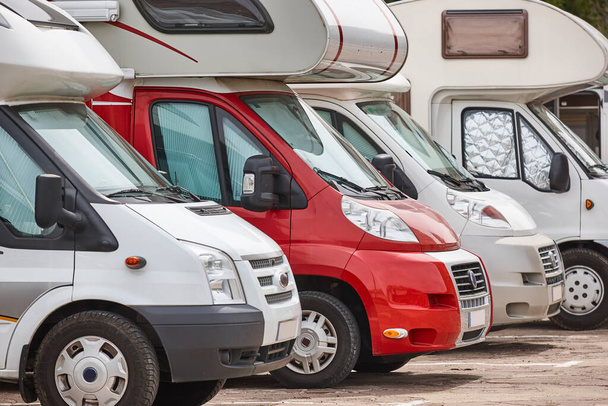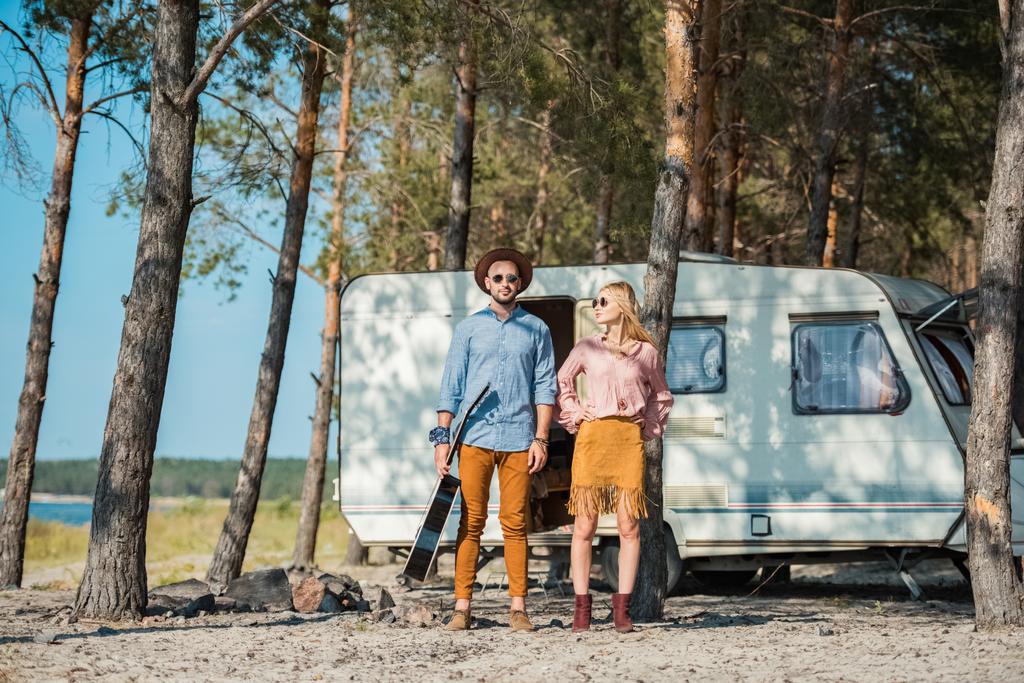In recent years, the allure of the open road and the freedom to explore untamed landscapes have captivated the hearts of adventure-seekers worldwide. Amidst this growing desire for exploration, the camper van has emerged as the ultimate companion, enabling travelers to embrace a nomadic lifestyle without sacrificing the comforts of home. With its compact size and ingenious design, the camper van has redefined the way we travel, giving rise to a movement that celebrates both independence and sustainability.

This article delves into the fascinating world of camper vans, exploring their history, the diverse range of models available today, and the enduring appeal they hold for those who seek to wander beyond the beaten path.
- The Evolution of Camper Vans
The origins of camper vans can be traced back to the 1950s when the iconic Volkswagen Type 2, affectionately known as the “VW Bus” or “Microbus,” hit the road. This iconic vehicle, with its distinctive rounded shape and rear engine, became a symbol of counterculture and adventure during the 1960s and 1970s. Embodying the spirit of freedom, many enthusiasts customized their VW Buses into fully-equipped living spaces, transforming them into home-on-wheels.
As the years passed, other automakers recognized the appeal of camper vans and began developing their own versions. Brands like Ford, Mercedes-Benz, and Fiat joined the market, offering innovative designs, increased comfort, and modern amenities. Today’s camper vans boast efficient engines, smart storage solutions, and cutting-edge technologies, making them a practical choice for modern nomads.
- The Versatility of Camper Vans
One of the most attractive aspects of camper vans is their versatility. Unlike traditional RVs, camper vans are compact enough to navigate narrow roads and fit into regular parking spaces. Their smaller size also makes them more fuel-efficient, reducing the environmental impact of travel.
Furthermore, camper vans come in various layouts, offering travelers a plethora of choices to suit their needs. Some models feature pop-up roofs that provide additional headroom and sleeping space, while others boast cleverly designed multi-functional furniture that can transform the interior from a living area to a bedroom or dining space in a matter of seconds.
Additionally, camper vans are not solely limited to summer adventures. With proper insulation and heating systems, they can be comfortably used in colder climates, allowing travelers to experience the magic of winter landscapes and the thrill of skiing or snowboarding right from their doorstep.

- The Appeal of Van Life Culture
In recent times, the rise of social media has fueled the popularity of van life culture. Through platforms like Instagram and YouTube, van lifers share their inspiring stories of adventure, self-discovery, and the pursuit of a simpler, more sustainable lifestyle. The van life movement has fostered a sense of community among like-minded individuals, encouraging the exchange of travel tips, van conversion ideas, and support for those considering a life on the road.
The allure of van life lies in its embrace of minimalism, self-sufficiency, and a connection to nature. Freed from the confines of a fixed address, van dwellers can wake up to breathtaking landscapes, chase sunsets, and create their own schedules. They become stewards of the environment, practicing responsible tourism and leaving little trace behind in their wake.
- Sustainability and Eco-consciousness
In a world grappling with environmental challenges, camper vans present a sustainable travel alternative. Most modern camper vans are equipped with solar panels, allowing travelers to harness the power of the sun to generate electricity for their appliances and devices. This eco-friendly approach reduces the reliance on traditional energy sources and minimizes the carbon footprint of travel.
Learn more at Wiki as well.
